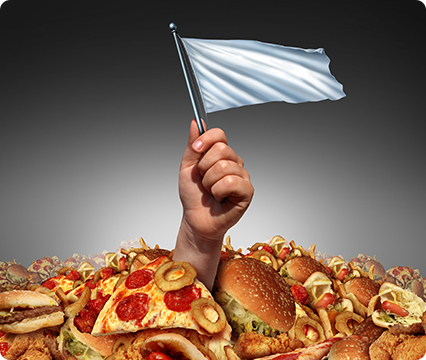Obesity as a behavioral addiction: moving past quick fixes and the case for inclusion in the Diagnostic and Statistical Manual of Mental Disorders


The CNP Diet, Craving, and Food Addiction Research Category explores the psychological, neurobiological, and behavioral interrelations underlying cravings, compulsive overeating, and consumption of highly palatable or ultra-processed foods, highlighting a bidirectional relationship between eating behaviors and dietary intake patterns. Join the CNP Library Membership to learn more.

This 2018 review presents the multifactorial social, neurobehavioral, and metabolic determinants of food intake that influence obesity risk to promote food craving and excessive food intake. The determinants included rewarding foods that stimulate brain reward motivation and stress circuits to influence eating behaviors, as well as stress hormones that hijack the brain’s emotional (limbic) and motivational (striatal) pathways. Sinha (2018) discusses the impact of high-stress levels and trauma, in addition to metabolic alterations such as higher weight, and altered insulin sensitivity, on self-control processes that regulate emotional, motivational, and visceral homeostatic mechanisms of food intake and obesity risk. Also reviewed was the potentially positive interaction between dynamic effects of neurobehavioral adaptations in metabolic, motivation, and stress neurobiology with food craving, excessive food intake, and weight gain. The author highlights key areas that require future investigation to adequately comprehend and address this growing obesity epidemic.
Obesity as a behavioral addiction: moving past quick fixes and the case for inclusion in the Diagnostic and Statistical Manual of Mental Disorders
Understanding food addiction through the lens of psychological well-being, self-control, and eating behavior: a cross-sectional study
TOWARD: A metabolic health intervention that improves food addiction and binge eating symptoms
Food reward and food Choice. An inquiry through the liking and wanting model
Psychological differences in food addiction and binge eating in a general Polish population
Gender-related differences in food craving and obesity
Food addiction in patients on weight loss treatment
Mind over milkshakes: Mindsets, not just nutrients, determine ghrelin response
Ultra-Processed food addiction: A research update